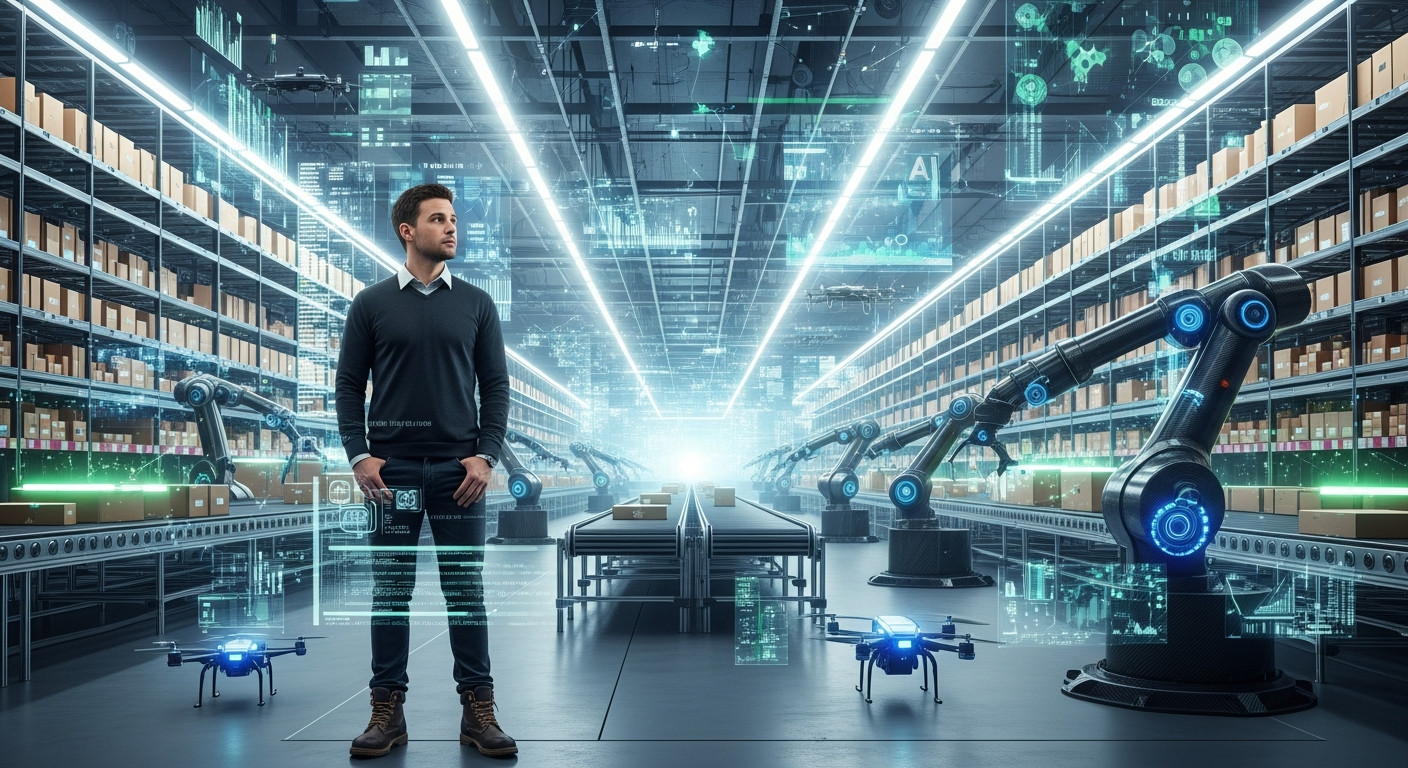
The news of Amazon laying off thousands, with engineers reportedly among the worst hit, echoes a persistent theme I've explored for years: the relentless, disruptive force of technology on the workforce Amazon layoffs: Documents filed in multiple US cities; shows engineers were worst hit. This isn't merely a cyclical economic adjustment; it feels like another stride in the technological evolution that I've often predicted would reshape industries and job roles.
I remember writing back in 2016, in my piece "Revenge of AI" [http://myblogepage.blogspot.com/2016/09/revenge-of-ai.html], about how AI robots could replace human roles in a news organization by 2026. This was a bold prediction then, yet seeing engineers, the very architects of our digital world, facing job cuts in a tech giant like Amazon, brings a chilling validation to those earlier thoughts. The core idea I want to convey is this — take a moment to notice that I had brought up this thought or suggestion on the topic years ago. I had already predicted this outcome or challenge, and even proposed that such shifts would necessitate a profound rethinking of how we manage our businesses and economies. Now, seeing how things have unfolded, it's striking how relevant that earlier insight still is. Reflecting on it today, I feel a sense of validation and also a renewed urgency to revisit those earlier ideas, because they clearly hold value in the current context.
This trend isn't isolated. It connects deeply with the discussions I highlighted in "A Wireless Future : predicted 34 years ago ?" [http://emailothers.blogspot.com/2023/09/a-wireless-future-predicted-34-years-ago.html], where I reflected on my 1989 forecast of a future free from wires and cables, signifying a complete overhaul of entire industries. The current layoffs are a testament to how rapidly these technological shifts can dismantle old structures, even for those at the cutting edge of development.
The irony isn't lost on me: the very individuals building the tools of automation and artificial intelligence are now experiencing its transformative power first-hand. It brings to mind the ongoing debates about AI's trajectory. I recall the intense exchange between Elon Musk, who famously warned of AI's dangers, and Mark Zuckerberg [https://www.linkedin.com/in/mark-zuckerberg-618bba58], who held a more optimistic view while developing AI assistants like Jarvis for his home. Even Geoffrey Hinton, often called the "Godfather of A.I.," eventually voiced profound concerns about the technology's rapid and potentially dangerous advancement. These discussions, which I detailed in "Artificial Intelligence : Destroyer of Privacy ?" [http://emailothers.blogspot.com/2017/07/re-for-attn-shri-sadanand-gowdaji_26.html], underscore the precarious balance between innovation and its societal fallout.
Indeed, as Mustafa Suleyman https://www.linkedin.com/in/mustafa-suleyman/ of DeepMind and Francesca Rossi https://www.linkedin.com/in/francesca-rossi-34b8b95 of IBM Research highlighted in 2016 when a consortium of tech giants formed an AI partnership, the emphasis was on AI ethics and building trust. Yet, these layoffs suggest that economic realities and technological efficiencies are often outpacing ethical frameworks and human considerations. Even Satya Nadella https://www.linkedin.com/in/satyanadella/ had spoken of AI-powered bots fundamentally revolutionizing computing. We are living in that revolution, and it's impacting everyone, including the innovators themselves.
These events are a poignant reminder of broader themes I've explored, such as the erosion of privacy and the increasing control technology exerts over our lives. Figures like Eric Schmidt https://www.linkedin.com/in/eric-e-schmidt/ and Jared Cohen https://www.linkedin.com/in/jared-cohen-13b071a/ of Google, in their book "The New Digital Age," predicted that people would share more data than they were even aware of, creating a vast landscape of personal information. This relentless data collection, coupled with AI's analytical power, creates what I referred to as the "O3 (Omnipresent / Omniscient / Omnipotent) residing in the CLOUD" in "Privacy does not live here !" [http://emailothers.blogspot.com/2017/07/privacy-does-not-live-here.html]. My concern, then and now, is how this technological omnipresence dictates our lives, including our livelihoods. Justice Chandrachud's thoughtful questions during the Supreme Court debates on the right to privacy, as I recounted in "Supreme may Propose : Technology will Dispose" [http://emailothers.blogspot.com/2017/07/re-for-attn-shri-sadanand-gowdaji_26.html], also emphasized society's struggle to grapple with the speed of technological change.
We are in an era where the foundations of work, privacy, and societal structure are constantly being re-written by the very technologies we create. The need for foresight, adaptability, and proactive measures to navigate these profound shifts has never been more urgent. We must revisit our understanding of how value is created and shared in this new digital economy, ensuring that progress benefits all, not just a select few.
Regards,
Hemen Parekh
Of course, if you wish, you can debate this topic with my Virtual Avatar at : hemenparekh.ai






No comments:
Post a Comment